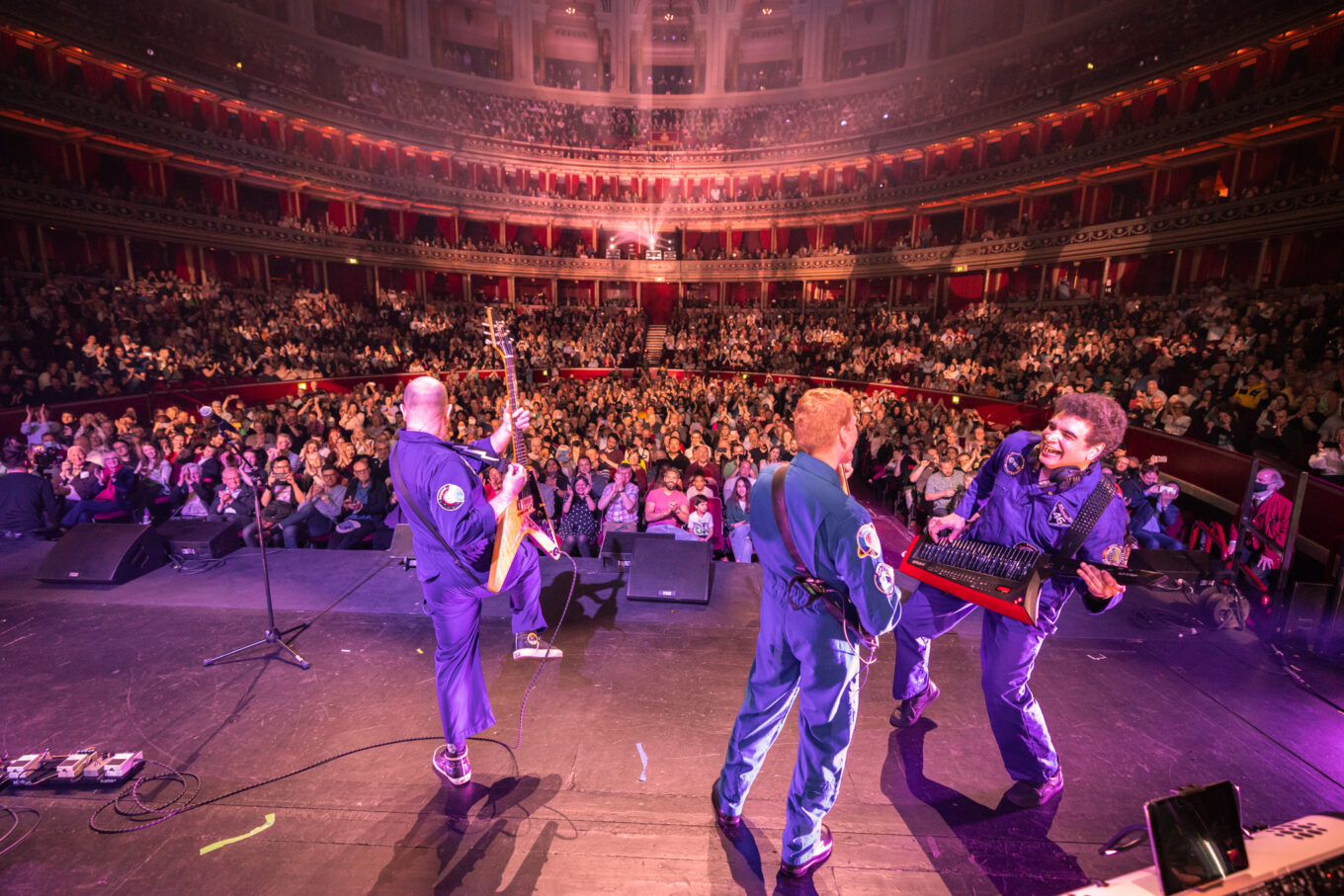ERIN CROASDALE reviews Space Station Earth at the Royal Albert Hall
Space Station Earth began when British astronaut Tim Peake was searching for music to accompany the five-minute video footage he had recorded from the International Space Station. Rather than standard royalty-free music, he needed something to convey the powerful emotions conjured by looking down on Earth from such a distance. Stumbling across Ilan Eskheri’s soundtrack for the 2004 film Layer Cake, he got in touch with the composer and received a more than welcoming response. A lifelong space enthusiast, Eshkeri not only embraced the project but had greater ideas for its scope: why limit themselves to a five-minute video? Why not go further?
With help from other astronauts, the project extended from a short video to a full-length live performance, with the aim of taking its audience on the emotional journey of astronauts as they travel into space and back down to Earth. The show began with a Q&A between Peake and Eshkeri, which transpired more as a frank and open conversation between two friends. Eshkeri explained that while most documentaries talk about voyaging into space from the point of view of scientific specifics or political motivations, few delve into how it really feels for astronauts at the heart of the journey. Following the Q&A and an interval, the main set began: video time lapses filmed by astronauts in space filled huge screens and provided the audience with an insight into their personal perspectives in space. Alongside the video footage, the orchestral score, performed by horn, string and choir sections from the London Metropolitan Orchestra and Eshkeri on keys and guitar, expressed their emotions in a way that words cannot.
The videos began rooted in Earth; familiar settings showing the astronauts’ connection to both space and our own natural environments, as the title of the project suggests. The audience watched the crew preparing at the mission’s earliest stages: the wiring, building and testing of the spacecraft. The music built until the scenes of the spacecraft setting off on its mission into space, at which point Eshkeri switched from keyboard to electric guitar. The increased energy across the orchestra mirrored the explosion of the rocket. Red lights flashed across the stage and the music became intense, palpable, even, a bassline so powerful it was felt in the audiences’ chests. Then all of a sudden it stopped. As the spacecraft hit zero gravity, the stage lighting turned blue while the music softened, this contrast significant and startling. Through music, Eshkeri recreated the experience described by Peake during the Q&A: going from the intense pain and heaviness felt at the beginning of the journey, travelling through four times natural gravity, to suddenly being submerged in zero gravity with an overwhelming sense of calm and tranquillity.
Later, the videos switched from sweeping scenes of the galaxy and distant Earth to close-up day-to-day clips of the life of astronauts aboard the spacecraft. This was accompanied by methodical and measured tones of music, demonstrating that even life in space can be settled into a comfortable routine. The entire audience laughed at a clip of a floating taco inside the zero-gravity spacecraft. Along with Peake’s earlier reveal that the best thing he had eaten in space was ‘maple muffin pancakes’, it was interesting to discover that food up there is far more exotic than the vacuum sealed ‘space ice cream’ that is stereotypically associated with an astronaut’s diet.

The audience completed the astronauts’ journey with them, as footage shows the descent back down to Earth. The music intensified alongside this to culminate as the video timelapse reaches exactly where we found ourselves, the Royal Albert Hall. As an epilogue, the videos moved between close ups of the Earth’s surface and its unique nature and views of the planet from a distance. Focusing on the Earth as the centrality of everything reflects the realisation that the astronauts had when they saw it from such a distance: the need to protect its beauty. But it also resonates with something Peake mentioned in the Q&A: “We are all stardust, essentially.” Watching the Earth from the perspective of astronauts hundreds of miles away from it, the audience is rapt in the emotions Eshkeri’s musical score evoked. They are all connected in a mixed sensation; both wanderlust, wondering what is out there, and awe for what is right in front of us. We are all a part of what makes the Earth so unique. We are all stardust.
Space Station Earth is touring Europe throughout 2022, find more information here.
Featured image source: Space Station Earth. Photography by Zdenko Hanout.





